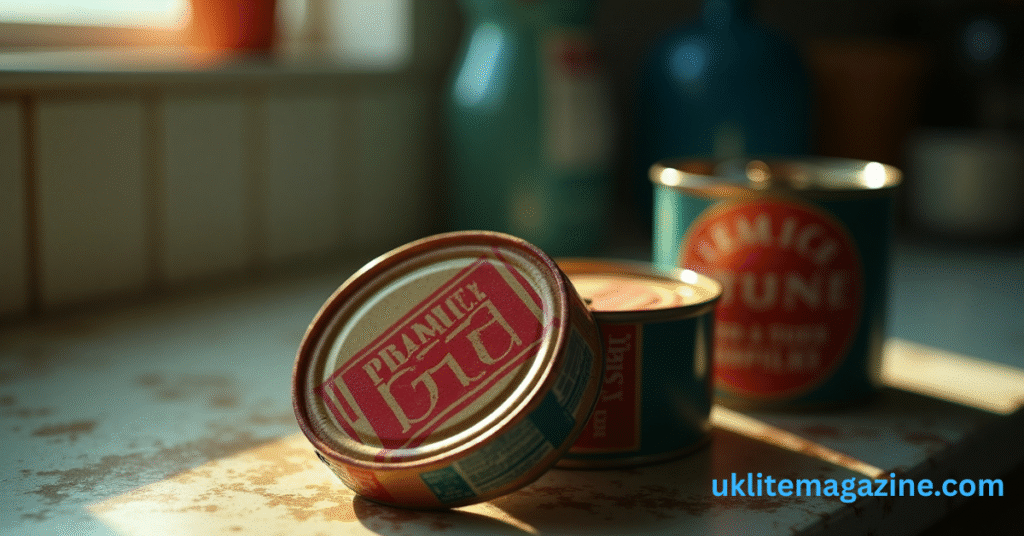In a recent safety alert, several tuna products have been pulled from store shelves due to contamination fears, raising concerns among seafood lovers and everyday consumers. Whether you rely on tuna for a quick lunch or stock up for emergencies, this recall might affect you. Here’s everything you need to know.
What Prompted the Tuna Recall?
The recall was issued after routine inspections revealed potential contamination in certain canned and packaged tuna products. According to preliminary reports, the concern involves possible bacterial contamination, including Listeria monocytogenes — a harmful bacteria that can cause serious illness, especially in young children, the elderly, and those with weakened immune systems.
In some cases, the contamination may have been caused during the manufacturing or packaging process, prompting a nationwide alert to ensure consumer safety.
Which Tuna Brands Are Affected?
So far, several popular tuna brands have been listed in the recall. If you recently purchased canned or packaged tuna, it’s crucial to check the brand, batch code, and expiration date.
Here’s a summary of the affected products:
| Brand Name | Product Type | Lot Number | Best By Date | UPC Code |
|---|---|---|---|---|
| OceanPure Tuna | Chunk Light in Water | L2345TNA | Aug 2026 | 041123456789 |
| BlueMar Cans | Solid White Albacore | 7788L5 | Sep 2025 | 098765432112 |
| SeaGold Select | Tuna in Oil | A1024T | Oct 2025 | 067891234501 |
Note: This is a developing story. Always refer to the official FDA Recall Page for the latest updates.
What Are the Health Risks?
Consuming contaminated tuna could lead to foodborne illness. The most common symptoms include:
-
Nausea
-
Vomiting
-
Diarrhea
-
Fever
-
Abdominal cramps
In serious cases — especially with Listeria — symptoms may appear within days or even weeks and can lead to more severe infections, including meningitis or blood infections.
What Should You Do If You Bought Recalled Tuna?
If you suspect that your tuna might be part of the recall:
-
Stop consuming it immediately.
-
Check the label for the brand, UPC code, and lot number.
-
Contact the manufacturer for refund or replacement details.
-
Dispose of the product safely — do not donate or feed to pets.
-
Clean any surfaces the product may have touched to avoid cross-contamination.
Most stores are offering full refunds, even without a receipt, for affected products.
Official Statements and Safety Measures
The FDA has urged all consumers to remain cautious and to report any illness potentially linked to the recalled tuna. The agency is also working closely with the manufacturers to trace the contamination source and prevent future issues.
Meanwhile, the brands involved have voluntarily recalled the products and issued public statements reassuring customers of their cooperation and commitment to food safety.
How to Stay Safe with Tuna in the Future
To protect yourself and your family:
-
Always check expiration dates and cans for dents or swelling.
-
Keep tuna stored in a cool, dry place.
-
Avoid consuming tuna past its best-by date.
-
Stay informed through FDA alerts or your local store’s notification systems.
Conclusion
This recall is a reminder that even widely trusted products can occasionally slip through the cracks. Staying informed, checking your food labels, and following proper food safety practices can go a long way in keeping your pantry — and your health — protected.
Frequently Asked Questions
Q1: Is all canned tuna unsafe now?
No. Only specific batches from certain brands are recalled. Check labels and lot numbers to be sure.
Q2: Can I get a refund for recalled tuna?
Yes, most retailers are offering refunds. Check with the store or manufacturer directly.
Q3: What should I do if I already ate the recalled tuna?
Monitor for symptoms. If you feel unwell, especially with fever or nausea, consult a doctor promptly.
Q4: Where can I find the official recall notice?
You can visit the official FDA Recalls Page for full details.

